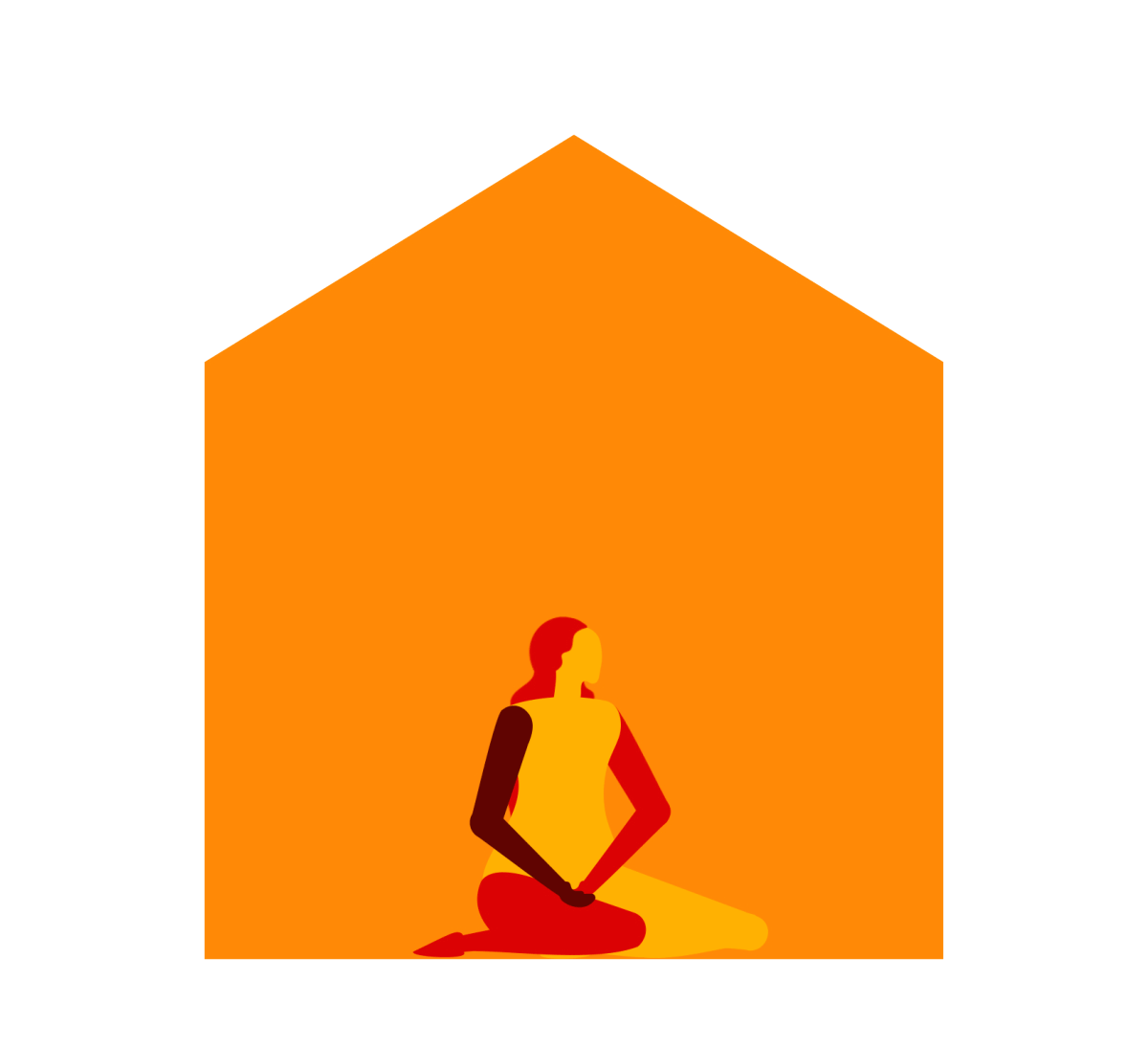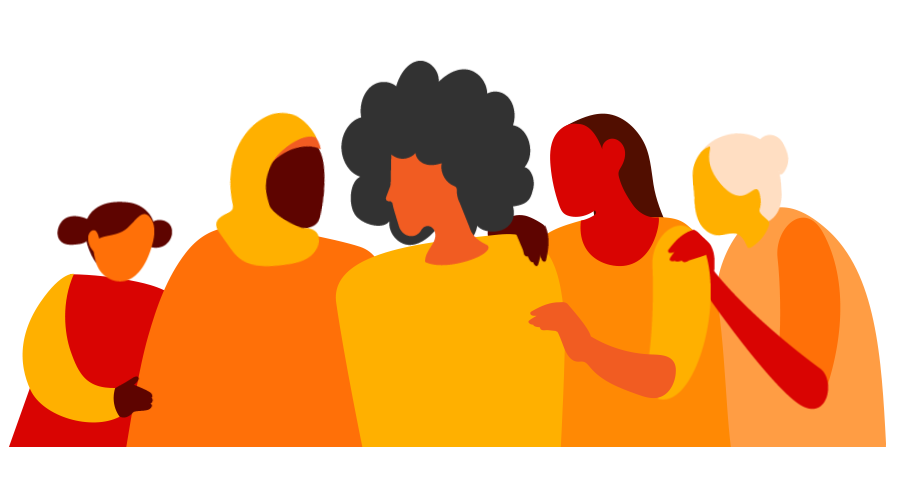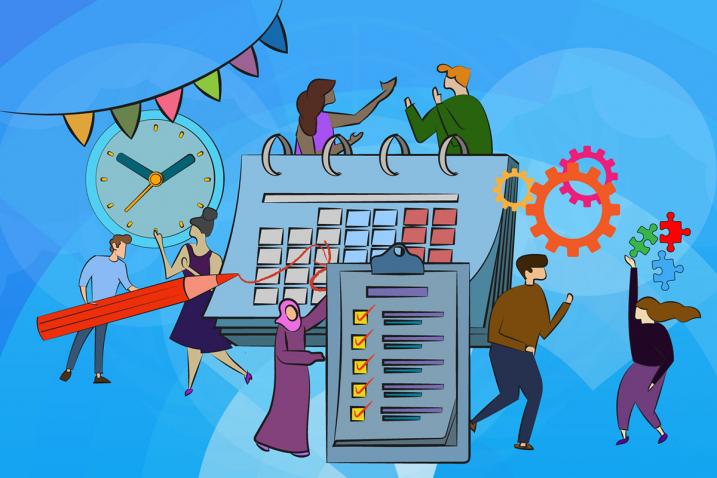International Day for the the Elimination of Violence Agains Women

Another future without violence against women is possible with education, essential services across policing, justice, health, and social sectors, and sufficient financing dedicated to women's rights.
Photo: UN Women
As in previous years, this year's International Day for the Elimination of Violence Against Women launches 16 days of activism to be concluded on the 10th of December 2020 — the day that commemorates the International Human Rights Day. Several public events are being coordinated and iconic buildings and landmarks will be 'oranged' to recall the need for a violence-free future.
2021 Theme: Orange the World: End Violence against Women Now!
Nearly 1 in 3 women have been abused in their lifetime. In times of crises, the numbers rise, as seen during the COVID-19 pandemic and recent humanitarian crises, conflicts and climate disasters. A new report from UN Women, based on data from 13 countries since the pandemic, shows that 2 in 3 women reported that they or a woman they know experienced some form of violence and are more likely to face food insecurity. Only 1 in 10 women said that victims would go to the police for help.
While pervasive, gender-based violence is not inevitable. It can and must be prevented. Stopping this violence starts with believing survivors, adopting comprehensive and inclusive approaches that tackle the root causes, transform harmful social norms, and empower women and girls. With survivor-centred essential services across policing, justice, health, and social sectors, and sufficient financing for the women's rights agenda, we can end gender-based violence.
To raise awareness, this year's theme is "Orange the World: End Violence against Women Now!". Orange is our color to represent a brighter future free of violence against women and girls. Be part of the orange movement!
Join our 16 days of activism
The International Day for the Elimination of Violence Against Women will mark the launch of the UNiTE to End Violence against Women campaign (Nov 25- Dec 10) — an initiative of 16 days of activism concluding on the day that commemorates the International Human Rights Day (10 December).
This campaign, led by the UN Secretary-General and UN Women since 2008, aims to prevent and eliminate violence against women and girls around the world, calling for global action to increase awareness, promote advocacy and create opportunities for discussion on challenges and solutions.
Among its activities, there is a UN official event that will take place on November 24 (10.00-11.30am ET.) You can follow teh webinar online through the UN Women's website by registering in advance. The campaign also includes the launch of a new report with updated data on gender violence, as well as a multitude of digital initiatives in which you can participate.
Iconic buildings and landmarks will be 'oranged' to recall the need for a violence-free future. So if you see orange lights, remember the meaning!

Join the campaign!
You can make a difference and participate in person or on social media using our official materials! Start your own conversation about gender-based violence using the hashtags: #GenerationEquality #orangetheworld #16days and #spreadtheword.
Why we must eliminate violence against women
Violence against women and girls (VAWG) is one of the most widespread, persistent and devastating human rights violations in our world today remains largely unreported due to the impunity, silence, stigma and shame surrounding it.
In general terms, it manifests itself in physical, sexual and psychological forms, encompassing:
- intimate partner violence (battering, psychological abuse, marital rape, femicide);
- sexual violence and harassment (rape, forced sexual acts, unwanted sexual advances, child sexual abuse, forced marriage, street harassment, stalking, cyber- harassment);
- human trafficking (slavery, sexual exploitation);
- female genital mutilation; and
- child marriage.
To further clarify, the Declaration on the Elimination of Violence Against Women issued by the UN General Assembly in 1993, defines violence against women as "any act of gender-based violence that results in, or is likely to result in, physical, sexual or psychological harm or suffering to women, including threats of such acts, coercion or arbitrary deprivation of liberty, whether occurring in public or in private life."
The adverse psychological, sexual and reproductive health consequences of VAWG affect women at all stages of their life. For example, early-set educational disadvantages not only represent the primary obstacle to universal schooling and the right to education for girls; down the line they are also to blame for restricting access to higher education and even translate into limited opportunities for women in the labour market.
While gender-based violence can happen to anyone, anywhere, some women and girls are particularly vulnerable - for instance, young girls and older women, women who identify as lesbian, bisexual, transgender or intersex, migrants and refugees, indigenous women and ethnic minorities, or women and girls living with HIV and disabilities, and those living through humanitarian crises.
Violence against women continues to be an obstacle to achieving equality, development, peace as well as to the fulfillment of women and girls' human rights. All in all, the promise of the Sustainable Development Goals (SDGs) - to leave no one behind - cannot be fulfilled without putting an end to violence against women and girls.
You are not alone

Have you experienced abuse and need help? If you have felt threatened, unsafe or need assistance, please see the list of country help lines.
Did you know?
- 1 in 3 women and girls experience physical or sexual violence in their lifetime, most frequently by an intimate partner.
- One hundred thirty-seven women are killed by a member of their family every day.
- Fewer than 40 per cent of the women who experience violence seek help of any sort.
+ Facts and Figures

Leaving no one behind
Join us on a new, global, multi-year initiative focused on eliminating all forms of violence against women and girls, The Spotlight Initiative.
The program's results last year were outstanding: 22% increase in prosecution of perpetrators; eighty-four laws and policies were passed or strengthened; and more than 650,000 women and girls were able to access gender-based violence services, despite restrictions related to the pandemic.

Why do we mark International Days?
International days and weeks are occasions to educate the public on issues of concern, to mobilize political will and resources to address global problems, and to celebrate and reinforce achievements of humanity. The existence of international days predates the establishment of the United Nations, but the UN has embraced them as a powerful advocacy tool. We also mark other UN observances.
macdonaldprody1980.blogspot.com
Source: https://www.un.org/en/observances/ending-violence-against-women-day
0 Response to "International Day for the the Elimination of Violence Agains Women"
Post a Comment